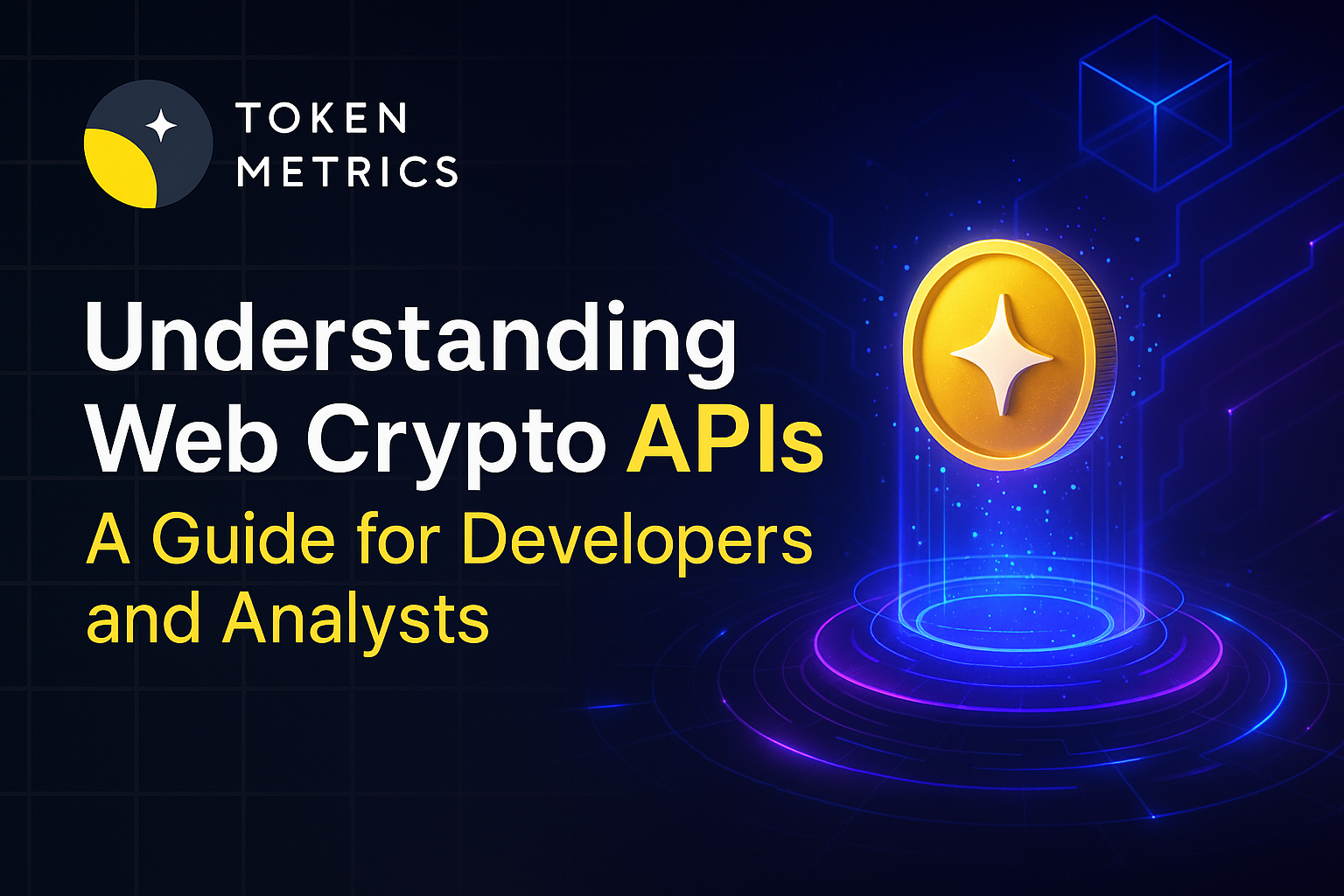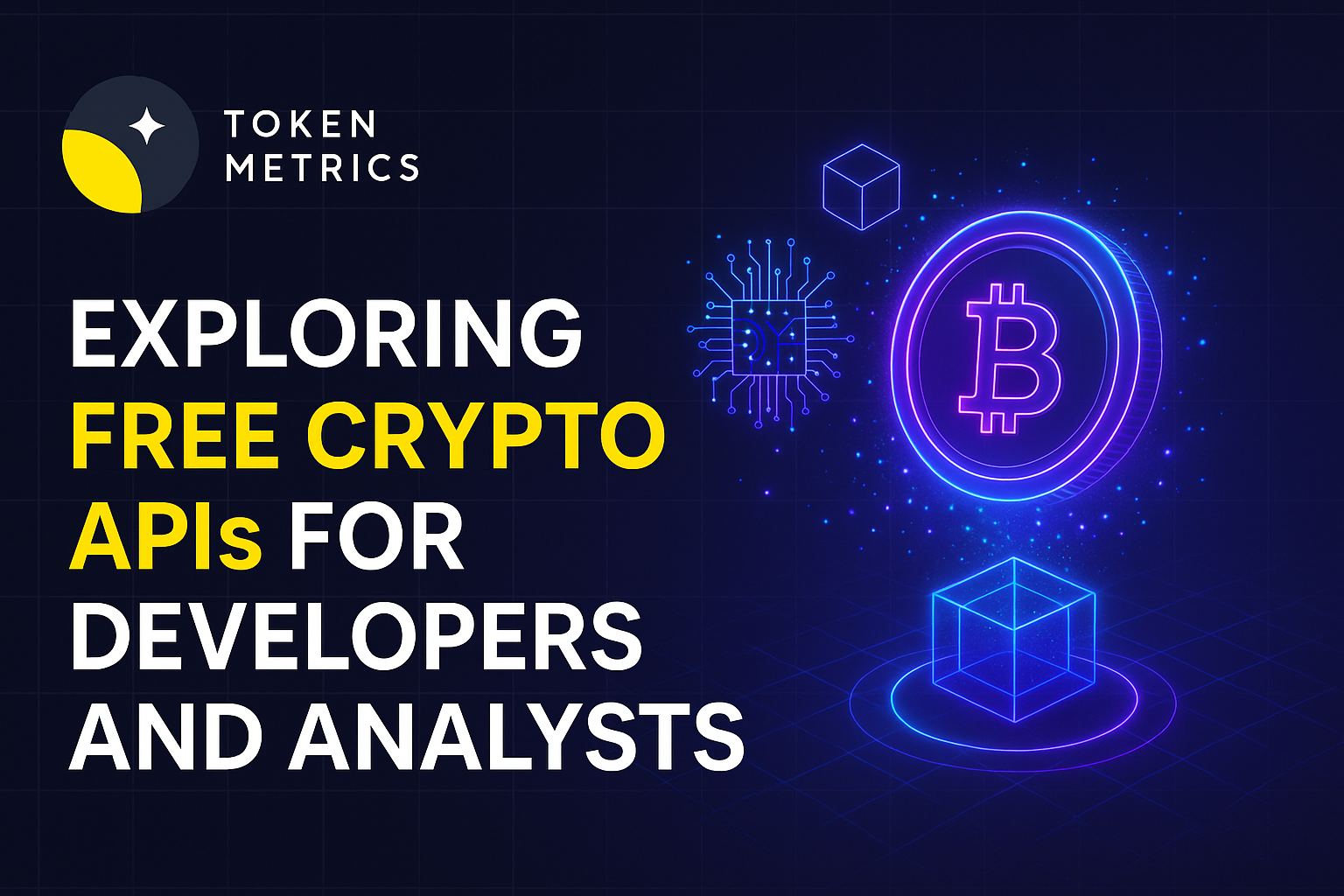8 Best Crypto Wallets for Investors in 2023

In the fast-evolving world of cryptocurrencies, investors need a secure and reliable place to store their digital assets. Crypto wallets play a crucial role in providing a safe haven for these investments.
With numerous options available in the market, it's important for investors to choose the best crypto wallets that offer both security and convenience.
In this article, we will understand the importance of a crypto wallet and explore the best crypto wallets for investors in 2023 that offer advanced security features, user-friendly interfaces, and support for a wide range of cryptocurrencies. So let's start with the basics -
What is a Crypto Wallet?
A crypto wallet, also known as a cryptocurrency wallet, is a software application, device, or physical medium that allows users to securely store, manage, and transfer their digital assets, such as Bitcoin, Ethereum, or other cryptocurrencies.
Its primary purpose is to provide a secure storage solution and facilitate transactions with cryptocurrencies.
Types of Crypto Wallets
1. Software Wallets
Software wallets are digital applications that can be installed on various devices to manage cryptocurrencies. They offer convenience and accessibility. Here are some common types of software wallets:
- Mobile Wallets - Mobile wallets are smartphone applications designed to run on iOS or Android devices. They offer a user-friendly interface and enable users to manage their crypto assets on the go.
- Desktop Wallets - Desktop wallets are applications installed on a personal computer or laptop. They provide enhanced security features and control over the private keys.
2. Hardware Wallets - Hardware wallets are physical devices specifically designed for storing cryptocurrencies securely. They are offline wallets, making them less susceptible to hacking attempts. Well-known hardware wallets are Ledger Nano S and Trezor.
3. Paper Wallets - Paper wallets involve printing out the public and private keys on a piece of paper. Although they offer enhanced security by keeping the keys offline, they require caution to avoid physical damage or loss.
4. Online Wallets - Online wallets, also known as web wallets, are wallets hosted on the internet by third-party service providers. While they offer convenience, they are considered less secure compared to other types of wallets due to the potential risk of hacking and theft.
Note - When selecting a crypto wallet, investors should consider several factors. Security should be the top priority, followed by ease of use, additional features, and integrations. It's crucial to choose a wallet that aligns with individual preferences and investment strategies.
List of Best Crypto Wallets in 2023
The security of your digital assets is of paramount importance when it comes to cryptocurrencies. A reliable and secure crypto wallet can protect your funds from hackers and ensure that your investments remain safe.
Additionally, a good crypto wallet should offer a user-friendly interface, seamless integration with various exchanges, and support for multiple cryptocurrencies.
Let's dive into the best crypto wallets available for investors in 2023.
1. Coinbase Wallet
Key Features
1. Integration with Coinbase exchange
2. Multi-signature functionality
3. Diverse cryptocurrency support
Coinbase Wallet is a popular choice for investors due to its seamless integration with the Coinbase exchange. If you're already using Coinbase, this wallet offers a convenient way to manage your funds.
The wallet supports multi-signature functionality, adding an extra layer of security to your transactions. It also supports a diverse range of cryptocurrencies, making it suitable for investors with various portfolios.
2. MetaMask
Key Features -
1. Secure Storage
2. Multiple Account Management
3. Decentralized App (dApp) Integration
MetaMask is a widely used web wallet that serves as a gateway to the decentralized web. It seamlessly integrates with popular decentralized applications (dApps) and provides a user-friendly interface for managing multiple cryptocurrencies.
MetaMask's emphasis on security and its compatibility with various browsers make it a suitable choice for investors seeking accessibility and versatility.
3. TrustWallet
Key Features -
1. Ability to participate in DeFi protocols
2. Integration with hardware wallets for enhanced security
3. Built-in decentralized exchange (DEX)
For investors who prefer to manage their cryptocurrencies on the go, Trust Wallet offers a seamless mobile experience.
This decentralized wallet is compatible with both Android and iOS devices, allowing you to access your digital assets anytime, anywhere.
Trust Wallet incorporates the latest security measures, such as biometric authentication and encrypted backups, ensuring that your funds remain secure at all times.
4. Binance
Key Features
1. User-friendly interface
2. Easy integration with the Binance exchange
3. Robust security measures with advanced encryption
The Binance wallet is a professional and user-friendly cryptocurrency storage solution. It supports multiple cryptocurrencies, ensuring flexibility for users.
The wallet prioritizes security through encryption techniques and offline storage options. Integration with the Binance exchange allows for seamless transfers.
Additional features include transaction history tracking and balance monitoring, providing complete control over crypto holdings. Overall, the Binance wallet is a reliable and feature-rich choice for crypto enthusiasts.
5. Exodus Wallet
Key Features
1. User-friendly interface
2. Built-in exchange for easy trading
3. Support for multiple cryptocurrencies
Exodus Wallet is a software-based wallet that combines a sleek design with a user-friendly interface. It offers a built-in exchange, allowing you to trade cryptocurrencies without leaving the wallet's interface.
Exodus supports a variety of cryptocurrencies, making it a versatile option for investors. The wallet also provides backup options and 24/7 customer support to assist users in case of any issues.
6. Crypto.com
Key Features -
1. Advanced security measures
2. Opportunities for staking and yield farming to earn passive income
3. Support for multiple blockchain networks
Crypto.com offers a best-in-class decentralized finance (DeFi) wallet for individuals interested in decentralized finance. With top-notch security measures and a user-friendly interface, it ensures the safety and convenience of users' digital assets.
The wallet supports multiple blockchain networks and offers easy management of cryptocurrencies, tokens, and NFTs. Additionally, it provides opportunities for staking and yield farming, allowing users to earn passive income.
Integrated with the broader Crypto.com ecosystem, the DeFi wallet allows seamless interaction with other products and services. Overall, Crypto.com's DeFi wallet is a reliable and feature-rich option for those looking to explore the world of DeFi.
7. Ledger Nano X
Key Features
1. Bluetooth connectivity for mobile use
2. Extensive cryptocurrency support
3. Robust security measures
The Ledger Nano X is a hardware wallet that offers advanced security features and the convenience of mobility. With Bluetooth connectivity, you can connect the wallet to your mobile device and manage your crypto assets on the go.
Ledger Nano X supports a wide range of cryptocurrencies, including popular ones like Bitcoin, Ethereum, and Ripple. The wallet employs robust security measures to protect your funds and ensures that your private keys never leave the device.
8. Trezor
Key Features
1. Secure offline storage (cold storage)
2. Support for multiple cryptocurrencies
3. User-friendly interface
Trezor is one of the most reputable crypto wallets in the market, known for its exceptional security features. It offers offline storage, also known as cold storage, which keeps your private keys completely offline, away from the reach of hackers.
With Trezor, you can store a wide range of cryptocurrencies, including Bitcoin, Ethereum, and more. The wallet also features a user-friendly interface, making it easy for beginners to navigate and manage their digital assets.
Frequently Asked Questions
Q1. What is the best crypto wallet for beginners in 2023?
For beginners, Coinbase and Ledger Nano X are excellent choices. Both wallets offer user-friendly interfaces and robust security features to ensure a safe and convenient experience
Q2. Are there any free crypto wallets available for investors?
Yes, there are free crypto wallets available in the market. Wallets like Exodus and Coinbase Wallet offer free versions with basic features.
However, it's important to note that paid wallets often provide additional security features and enhanced functionality.
Q3. Can I store multiple cryptocurrencies in a single wallet?
Yes, many crypto wallets support multiple cryptocurrencies. Wallets like Trezor, Ledger Nano X, Exodus, and Coinbase Wallet allow you to store various cryptocurrencies in a single wallet, providing convenience for investors with diverse portfolios.
Q4. What is the difference between hardware wallets and software wallets?
Hardware wallets, such as Trezor and Ledger Nano X, are physical devices that store your private keys offline. They offer enhanced security by keeping your keys away from internet-connected devices.
On the other hand, software wallets, like Exodus and Coinbase Wallet, are applications or programs installed on your computer or mobile device. They offer convenience and easy accessibility but may have slightly lower security compared to hardware wallets.
Q5. Can I recover my crypto assets if I lose my wallet or it gets damaged?
Most crypto wallets provide a recovery process known as the seed phrase or recovery phrase. This is a sequence of words that act as a backup for your wallet.
If you lose your wallet or it gets damaged, you can use the seed phrase to restore your crypto assets on a new wallet or device.
Q6. How can I ensure the security of my crypto wallet?
To ensure the security of your crypto wallet, it's important to follow these best practices:
- Choose a reputable and well-established wallet provider.
- Enable two-factor authentication (2FA) for an added layer of security.
- Keep your wallet software and devices up to date with the latest security patches.
- Use a strong and unique password for your wallet.
- Backup your wallet's seed phrase in a safe and secure location.
- Be cautious of phishing attempts and only download wallet software from official sources.
Conclusion
Selecting the appropriate cryptocurrency wallet is crucial for safeguarding your digital assets and ensuring a seamless investment journey as a crypto investor.
By comprehending the different wallet types accessible along with their distinct features, you can make an informed decision that perfectly aligns with your requirements and priorities.
Remember to consider your specific needs and preferences when selecting a wallet. Secure your investments and enjoy the exciting world of cryptocurrencies with a reliable crypto wallet.
Disclaimer
The information provided on this website does not constitute investment advice, financial advice, trading advice, or any other sort of advice and you should not treat any of the website's content as such.
Token Metrics does not recommend that any cryptocurrency should be bought, sold, or held by you. Do conduct your own due diligence and consult your financial advisor before making any investment decisions.
Create Your Free Token Metrics Account

.png)




%201.svg)
%201.svg)


%201.svg)










.svg)




.png)